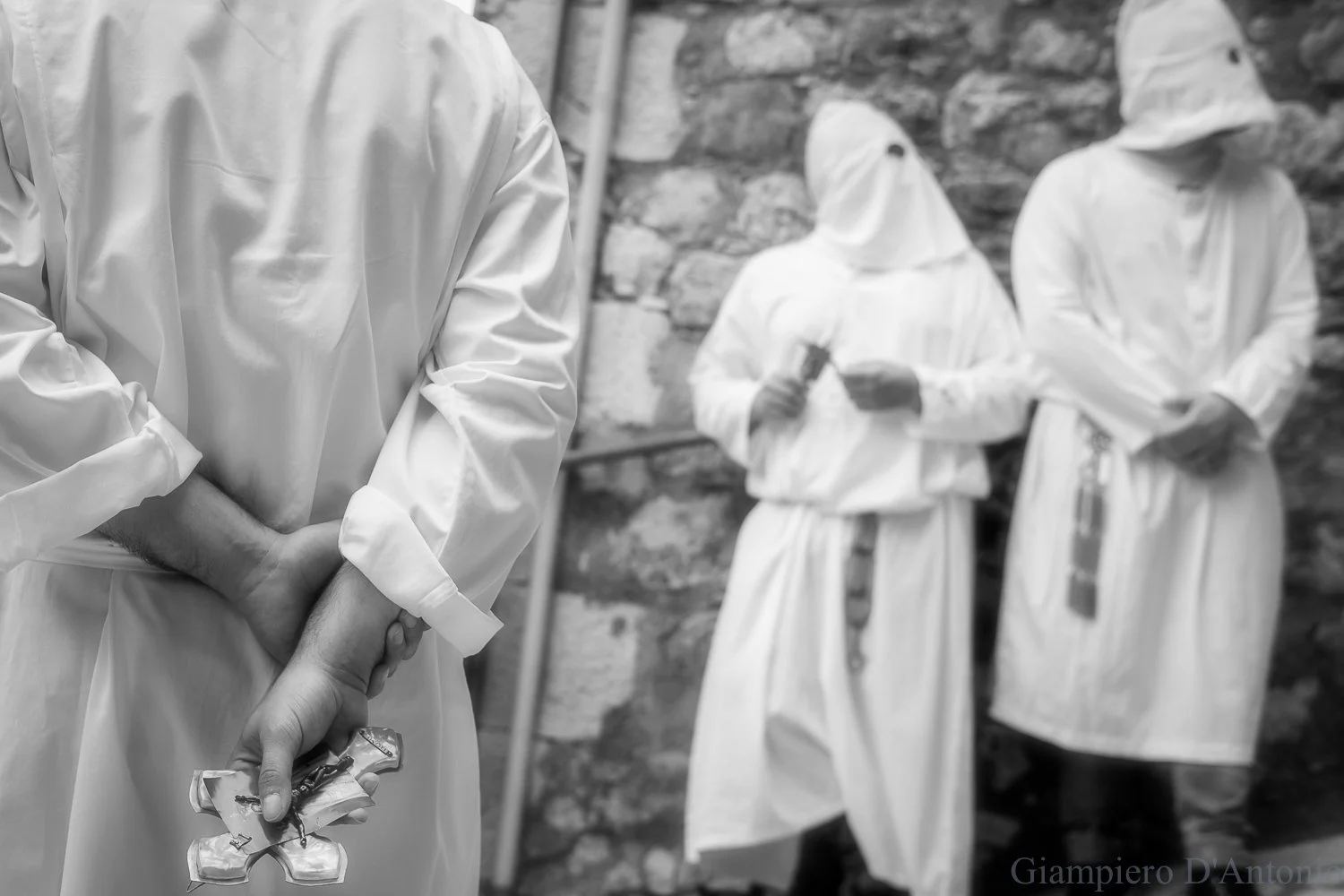In Guardia Sanframondi, in the heart of Sannio, faith is made flesh and manifests through a universal and poignant language: that of the hands. Every seven years, an entire community gathers for the Seven-Year Rites of Penitence, a centuries-old heritage that goes beyond mere tradition. This reportage doesn't focus on dates or events, but on the profound meaning of every single gesture. It's a journey that explores how devotion, penance, and community bonds take shape in a touch, a grasp, an act of offering.
Hands, Blood, and Silence: Faith Made into Gesture
The hands are the true thread of this story, the means by which the Battenti communicate their profound state of mind, remaining veiled and unknown to the crowd. The figure of the Battente is not just that of a penitent, but of a faithful individual who has chosen to offer their body as an instrument of atonement. The Rites are a spiritual journey, a solemn vow made to the Madonna Assunta to ask for a grace. Every strike, every act of penitence, is an expression of prayer, a way to unite one's own pain with that of Christ. It's not an act of self-harm, but an offering made with the soul and the body, in a mystical union that transcends pure physicality. Pain in this context is purification, a means to reach a higher and more profound spiritual dimension.
The Silent Story of Sacrifice
In the photographs, you will see hands that carry the weight of penance, gripping the instruments of sacrifice: the crown of thorns, rosaries, crucifixes. These are hands that are stained with blood, grasping the sponge of pins to inflict the wound, while others offer wine to disinfect, in a ritual that is at once pain and healing..
You will see reflective and penitent hands, moving with precise intent, sometimes alone in the space among the hooded crowd, other times beating their chests in unison in an act of collective sacrifice. You will see the strength in the hands that support the statue of the Virgin, and the humility in those that join together in silent prayer. Each gesture tells a story of deep devotion, an intimate and unbreakable pact between the faithful and their protecting Virgin.
These are calloused hands, the hands of simple people, the hands of sons and fathers, who pass this rite down from generation to generation. It is they, with their gestures, who tell the story of a faith that lives and is renewed, that attracts pilgrims and draws emigrants back home, uniting the entire community in a single, powerful collective prayer.
In an era of frenzy and distraction, these hands remind us that faith is a tangible act, a story that is passed down, a gesture of love that can be transmitted from one hand to another, from generation to generation. This is the true legacy of the Seven-Year Rites of Guardia Sanframondi.
Giampiero D’Antonio
Warning: Some content may offend your sensibilities


































































